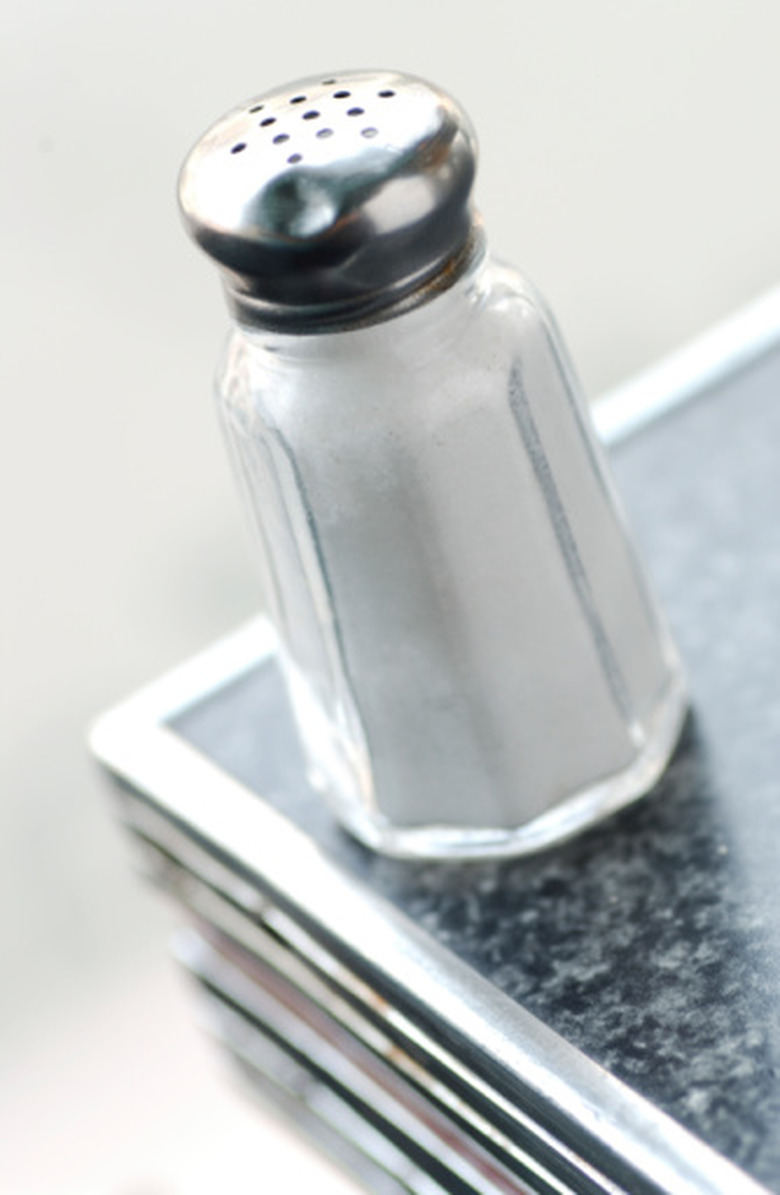What Dissolves Salt Besides Water?
In order to dissolve a solid into a solution, molecular bonds must be broken. Sugars, which are molecular solids, have weak intermolecular forces binding them together. Salts, on the other hand, are ionic solids and have much stronger forces because of their polarized ions (magnets) which keep them together. It takes much more energy to pull apart salt molecules than it does sugar and keeping them apart requires substitution of molecules. Simply put, there are no other solutions besides water that will dissolve a salt.
Molecular Structure of Salts
Molecular Structure of Salts
A salt is called an ionic solid as outlined by the chemistry department at Purdue University in their explanation of solubility. Energy is needed in order to break the strong polar (magnetic) bonds and a substitute must replace the missing pieces in order to keep them separated. Water molecules separate the salt molecules and at the same time, the water molecules bond with the separated pieces in order to keep them apart. This process can only occur as long as there are water molecules. Once the solution reaches equilibrium (the water molecules have bonded with as many salt molecules as they can manage) the process stops. During the time that salt is dissolving in water, energy is high and the solution is highly conductive.
Solvents and the Polarity Index
Solvents and the Polarity Index
Chemical-Ecology.net offers a list of solvents which shows water as having a polarity index of nine. That means that it is the most balanced solution with regard to its polarity, and, therefore, is the only solution which will dissolve a salt. Some salts are actually insoluble even in water. The New World Encyclopedia explains that like dissolves into like; basically, polar (magnetically charged) solids dissolve into polar solvents and non-polar (non-magnetically charged) solids dissolve into non-polar solvents. On the polarity index, the closest solvent to water in polarity is dimethyl sulfoxide at 7.2.
Soluble Salts
Soluble Salts
Table salt is just one type of salt and is water soluble. Other water-soluble salts include nitrates, chlorides, and sulfates. There are exceptions to the rule, though. A salt is considered insoluble if, by Purdue University's definition, it can dissolve in room temperature water to a concentration of 0.1 moles per liter at the very least. InnovateUs.net offers that moles are the unit of measure of solubility of a substance and are calculated per liter.
Insoluble Salts
Insoluble Salts
Some salts are insoluble. By Purdue University's definition, a salt is considered insoluble is the aqueous (water) solution's concentration at room temperature is not more than 0.001 moles at room temperature. The salts on this list include sulfides, oxides, hydroxides, chromates and phosphates. And, again, there are a few exceptions.
Cite This Article
MLA
Wiley, Pheori. "What Dissolves Salt Besides Water?" sciencing.com, https://www.sciencing.com/dissolves-salt-besides-water-8654840/. 24 April 2017.
APA
Wiley, Pheori. (2017, April 24). What Dissolves Salt Besides Water?. sciencing.com. Retrieved from https://www.sciencing.com/dissolves-salt-besides-water-8654840/
Chicago
Wiley, Pheori. What Dissolves Salt Besides Water? last modified March 24, 2022. https://www.sciencing.com/dissolves-salt-besides-water-8654840/

